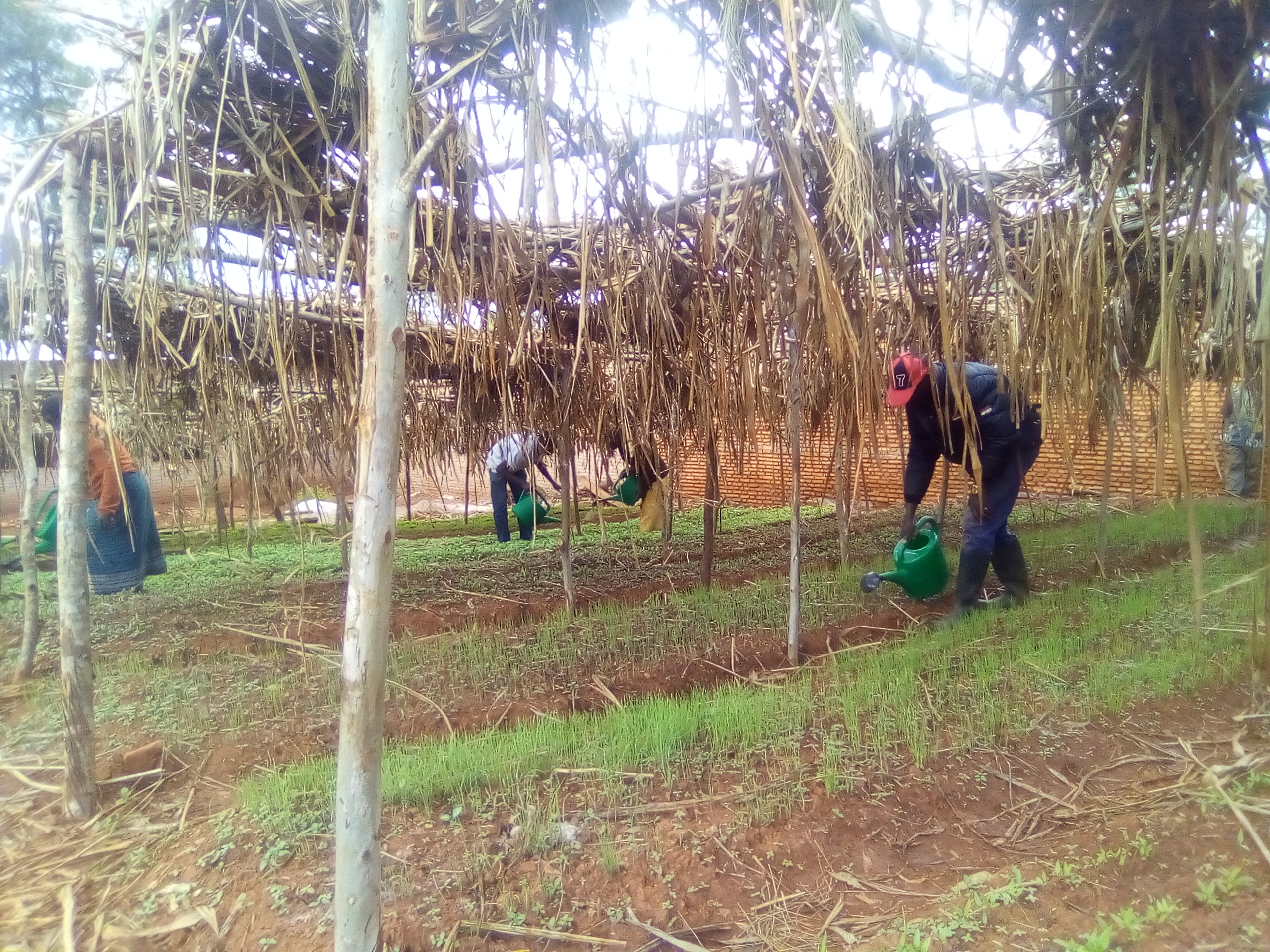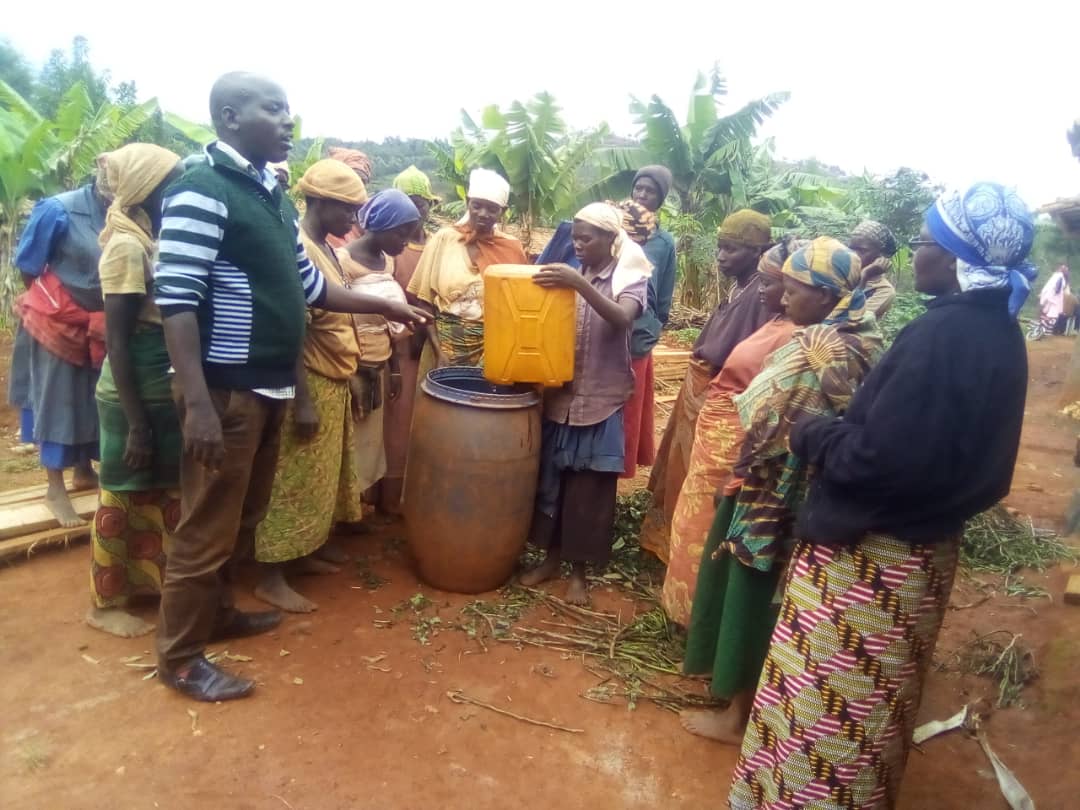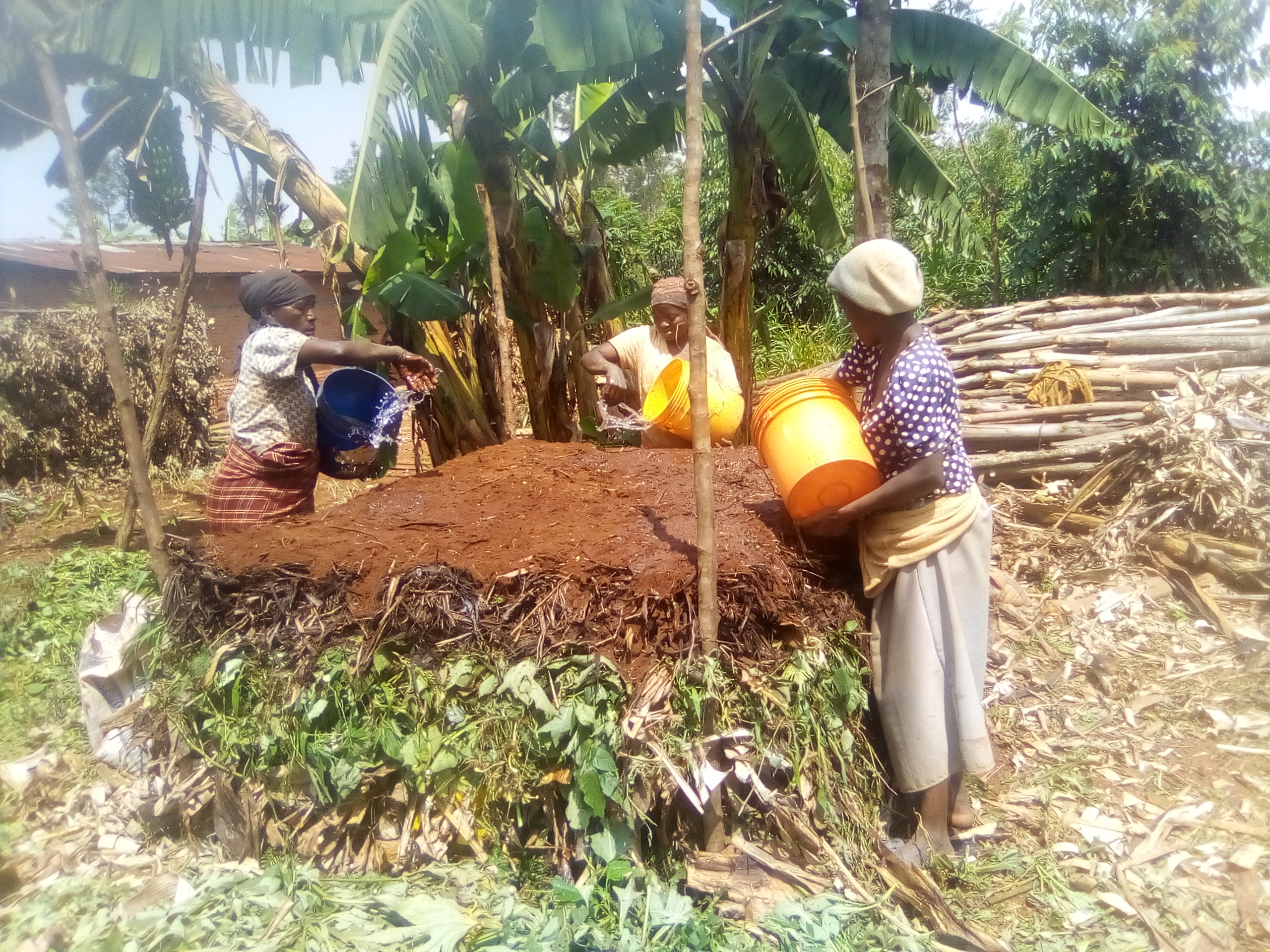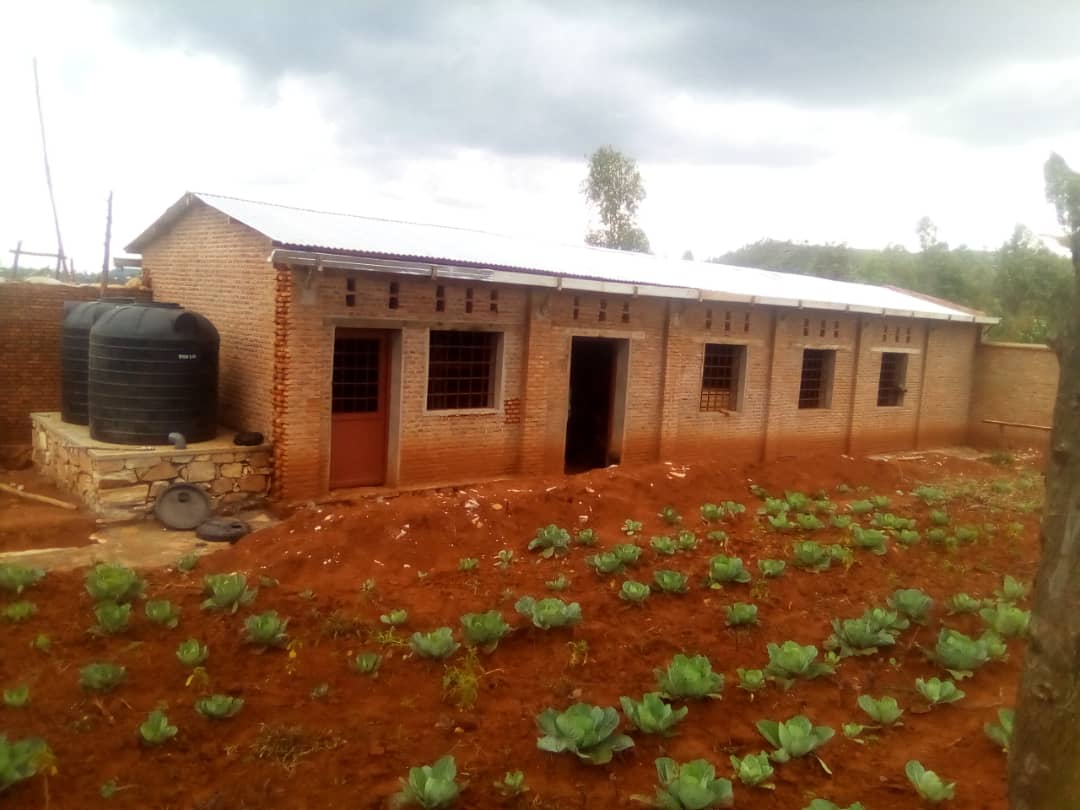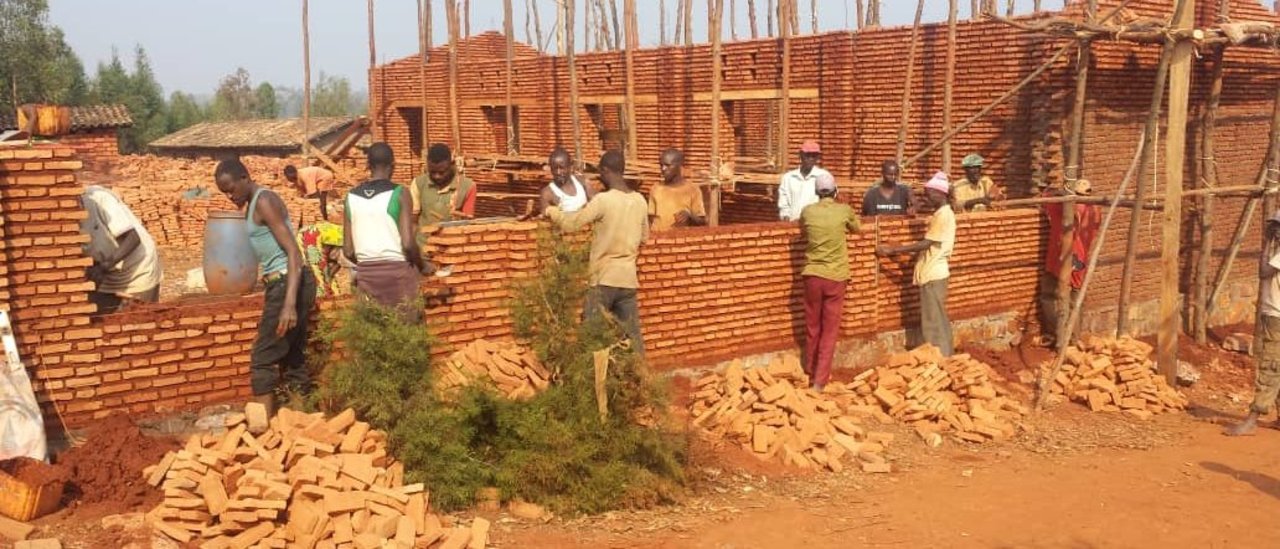
Let nature take effect: News from the permaculture project in Burundi (Part 2)
The first part of the project "Establishment an Agri-Social Education and Training Center in Gitega" in the East African country of Burundi is completed. Time for a summary of what has already been achieved and an outlook on what lies ahead.
The first six months were remarkable. The planning and redesign of the project area according to the ethical and design principles of permaculture was predominant in our activities. In a design process lasting several weeks, a detailed design plan, which is a planning sketch with the permaculture elements to be implemented, was worked out collaboratively. Simultaneously, the construction measures for the implementation of individual design elements, which had already been planned since the beginning of the project, were started on site, which covers a total of 5 hectares.
In addition to planting vegetable beds and erosion swales on hillslopes, abandoned land was recultivated, an open area in need of protection was enclosed with a wall, an access road with a bridge as well as an educational building was built.
Also worth mentioning is the school camp which took place shortly before Christmas (we reported in part 1). Supported by the motivated and eager-to-learn students of the nearby St. Kizito School, important earthworks were carried out to counteract the leaching of the valuable topsoil especially during the rainy seasons. This practical training was complemented by the theoretical introduction into necessary techniques by the local permaculture experts. Following this principle, the entire education and training takes place in the agricultural academy and educational school garden that are currently being built: Theoretical training and practical exercises go hand in hand with the continuous transformation and improvement of the local teaching and production areas for agricultural products and food.
In the second phase of the project, which is now underway, the focus is on agricultural training of future leaders and teachers in line with the train-the-trainer principle. A comprehensive permaculture course based on the principles of the pioneers Bill Mollison and David Holmgren is scheduled for this spring. In addition to technical knowledge transfer, particular attention will be given to practical exercise and the simultaneous ongoing implementation of permaculture design.
"The local participants within the scope of the Christian Camelius Brotherhood should become familiar with their future responsibilities at an early stage and, thus, acquire the necessary skills and gain the expertise and confidence to decide and act independently without our intervention”, so the responsible project managers Markus Roßkopf and Julia Fendel.
For the upcoming project activities, a visit of the responsible AKI project managers to the local team on site is planned. The inspection of the area including the identification of the local potentials and the evaluation of the past redesign measures, the coordination of the tasks and responsibilities of all project participants and the future operators as well as the preparation, support and implementation of the training measures shall contribute to the achievement of the project goals. All this, of course, in compliance with the applicable Covid-19 travel restrictions. We will keep you updated!
In the second half of this year, the focus will be on preparing the local project team not only professionally, but especially institutionally and in terms of business management for the self-determined continuation of the Agri-Social Education and Training Center. For this purpose, a pan-African network is to be established, providing space for mutual exchange in the form of mentoring partnerships among successful permaculture projects. AKI will help to initiate and supervise this institutional, management-oriented approach, but will gradually withdraw until the end of the project. Through this development process, it should become clear whether the preparation of the local sponsorship will be sufficient by the end of 2021 or whether further measures are needed by AKI.
Supporters wanted
AKI and its local project stakeholders rely on financial support from third parties and are always grateful for external support. All donations go 100% into the project. Material, tools, and provisions for the production of brick stones for further constructional containment of the area should be procured as soon as possible. Your support would make us, our project partners in Burundi and the benefiting students and local women very happy! If you would like to support the project, please feel free to contact us:
Markus Roßkopf
m.rosskopf(at)agrarkontakte.de
+49 (0)711 / 2140 306
